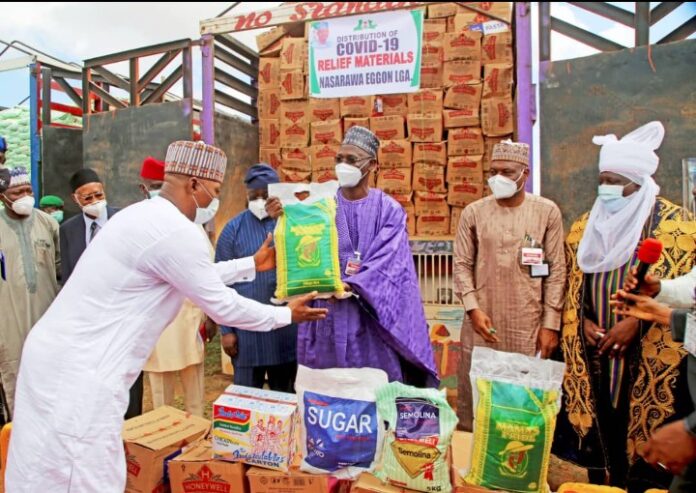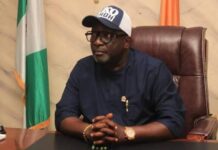By Collins Sunday, Lafia
To cushion the effect of the coronavirus pandemic of the indigenes and non-indigenes resident in Nasarawa state, the state government has distributed 38 trucks of palliatives to vulnerable persons in the state on behalf of the Federal Government and Coalition Against COVID-19 (CACOVID).
Gov. Abdullahi Sule speaking on Wednesday on Government House, Lafia, noted that the palliatives were donated to the state by the CACOVID.
“For now, each Local Government Area (LGA) will get one truck of various food items which include; rice, noodles, oil semolina, salt, sugar, among others.
READ : Lalong orders commissioners to undergo COVID-19 test after on tested positive
“The palliatives would be distributed to all the 1, 945 polling units in the state.
“The civil servants, businessmen and women, political appointees and members of the committee at the state and LGA levels are exempted from the intervention.
“However, the committee members at all levels would be held responsible for any abnormally in the distribution”, the governor said.
He noted that the distribution was done in addition to the one which was recently done by the state government.
 Advertisement.
Advertisement.
“We had earlier distributed one truck of palliative to each LGA to cushion the effect of the lockdown and other measures taken to contain the spread of the virus.
“The special committee, chaired by the commissioners and co-chaired by LGA Chairmen that handled the distribution, would still handle this distribution,’’ the governor said.
Emmanuel Akabe, the state Deputy Governor, who is also the Chairman of the Palliatives Distribution Committee, said they had put machinery on ground to ensure that the items got to the poorest people that really deserved it.
He explained that the distribution would be done at the 1,945 polling units.
READ ALSO : Nigeria police recover remains of four kidnapped persons in septic tank
He added that every beneficiary in a household would fill a form and provide phone numbers, names, location, among other information.
“The essence of the information is to afford the government the opportunity to verify whether the items got to the deserving people.
“We can pick any form and call the number of the person who collected the items for confirmation,” the deputy governor explained.
















